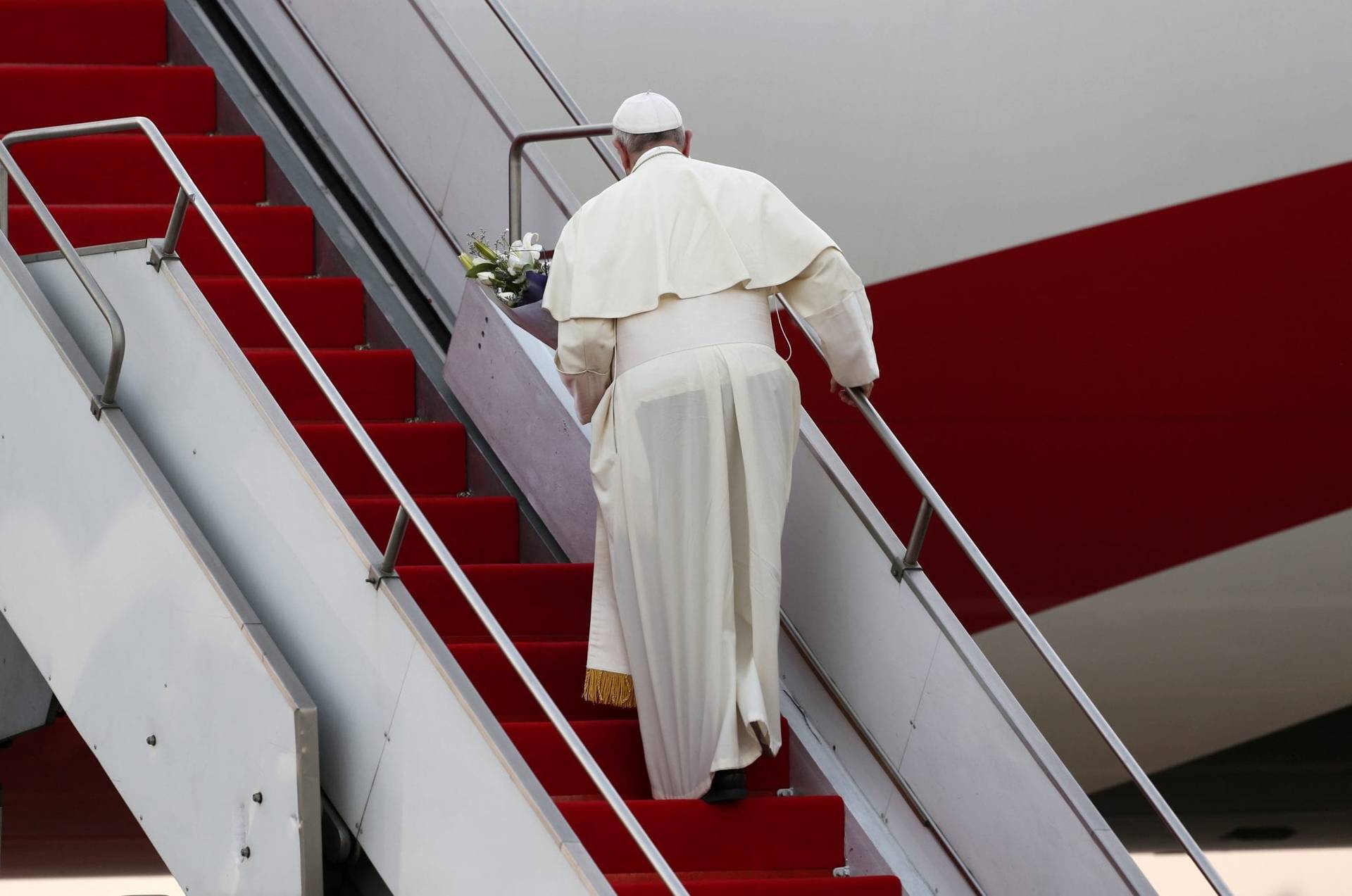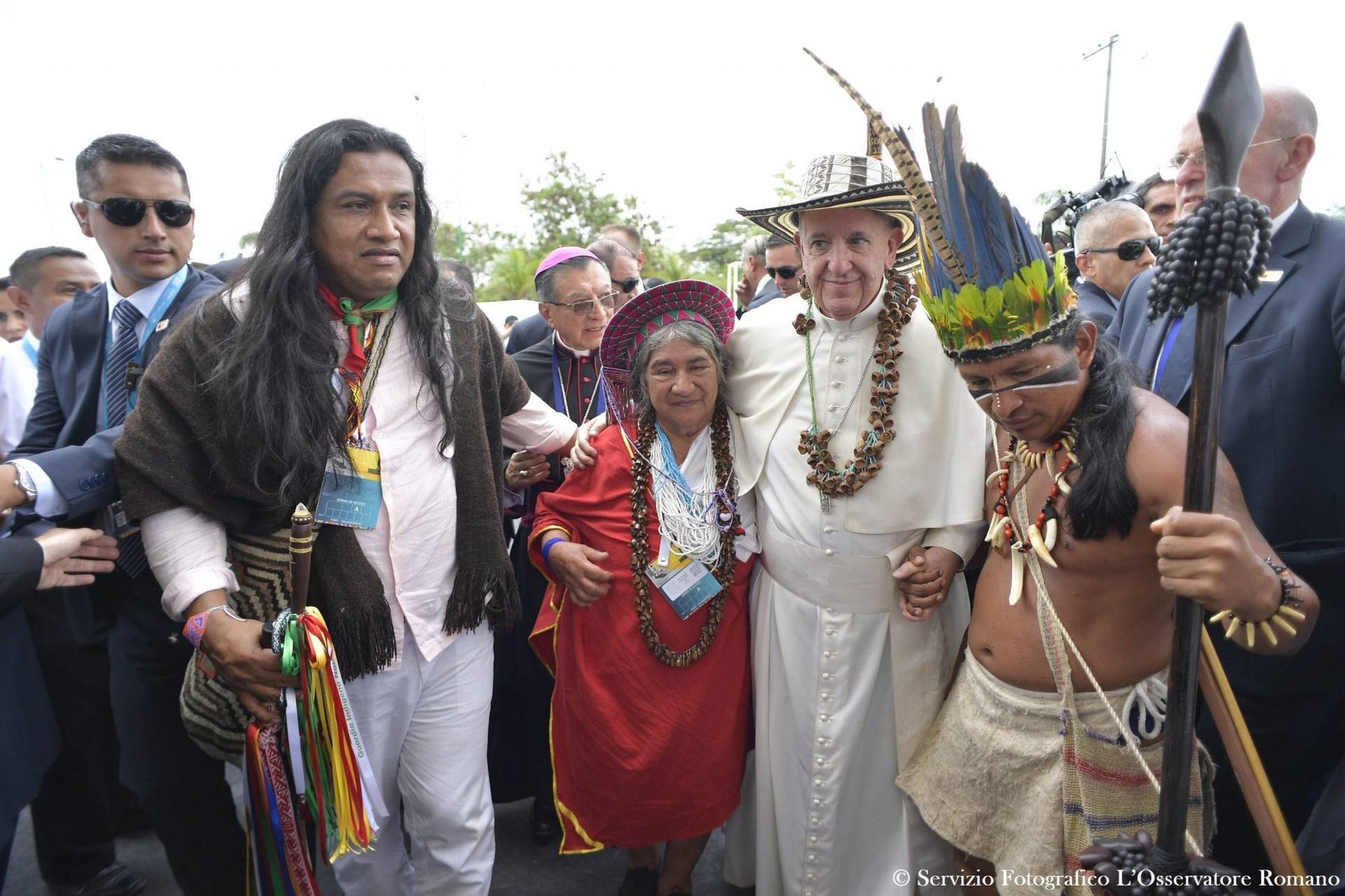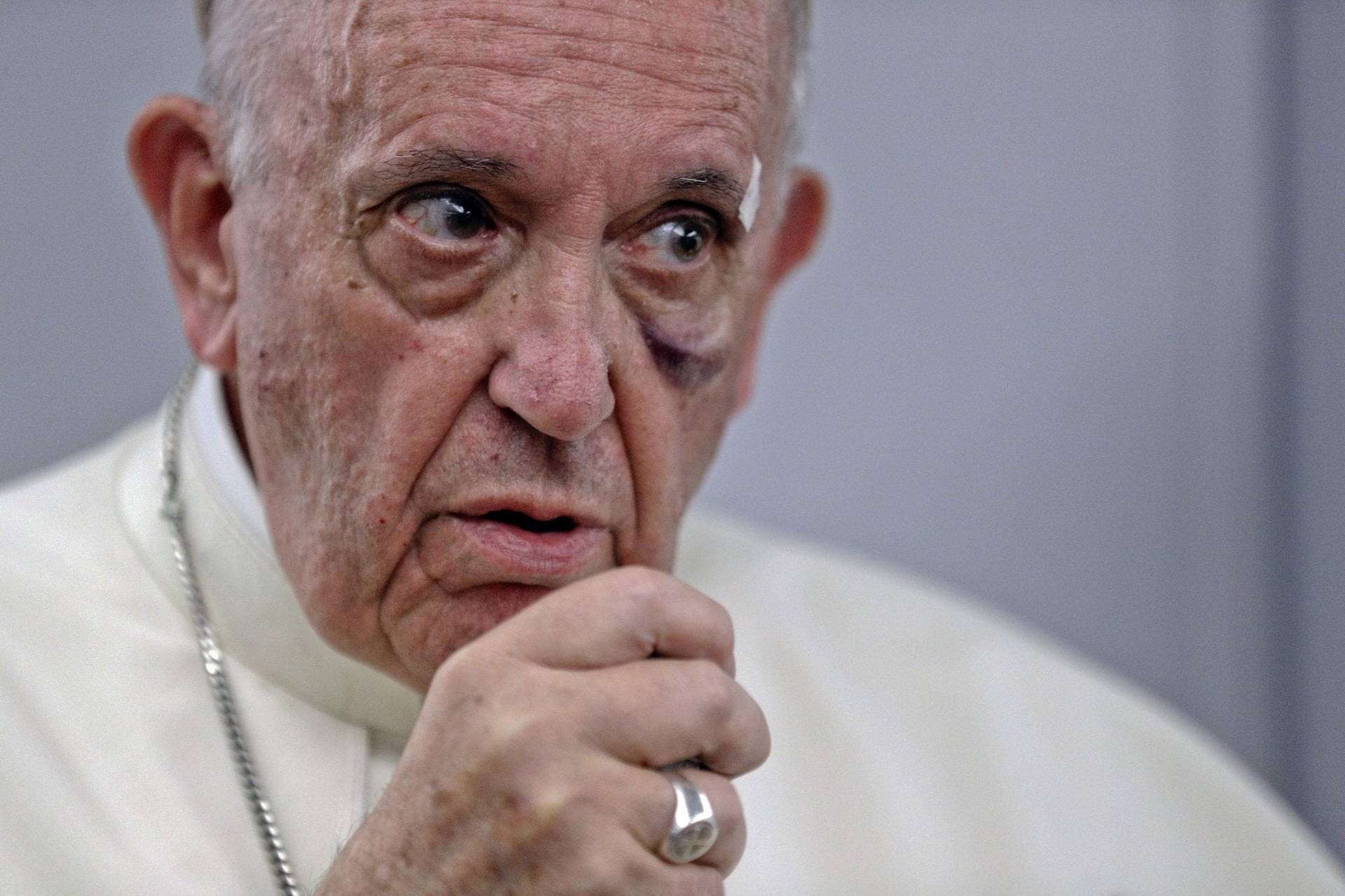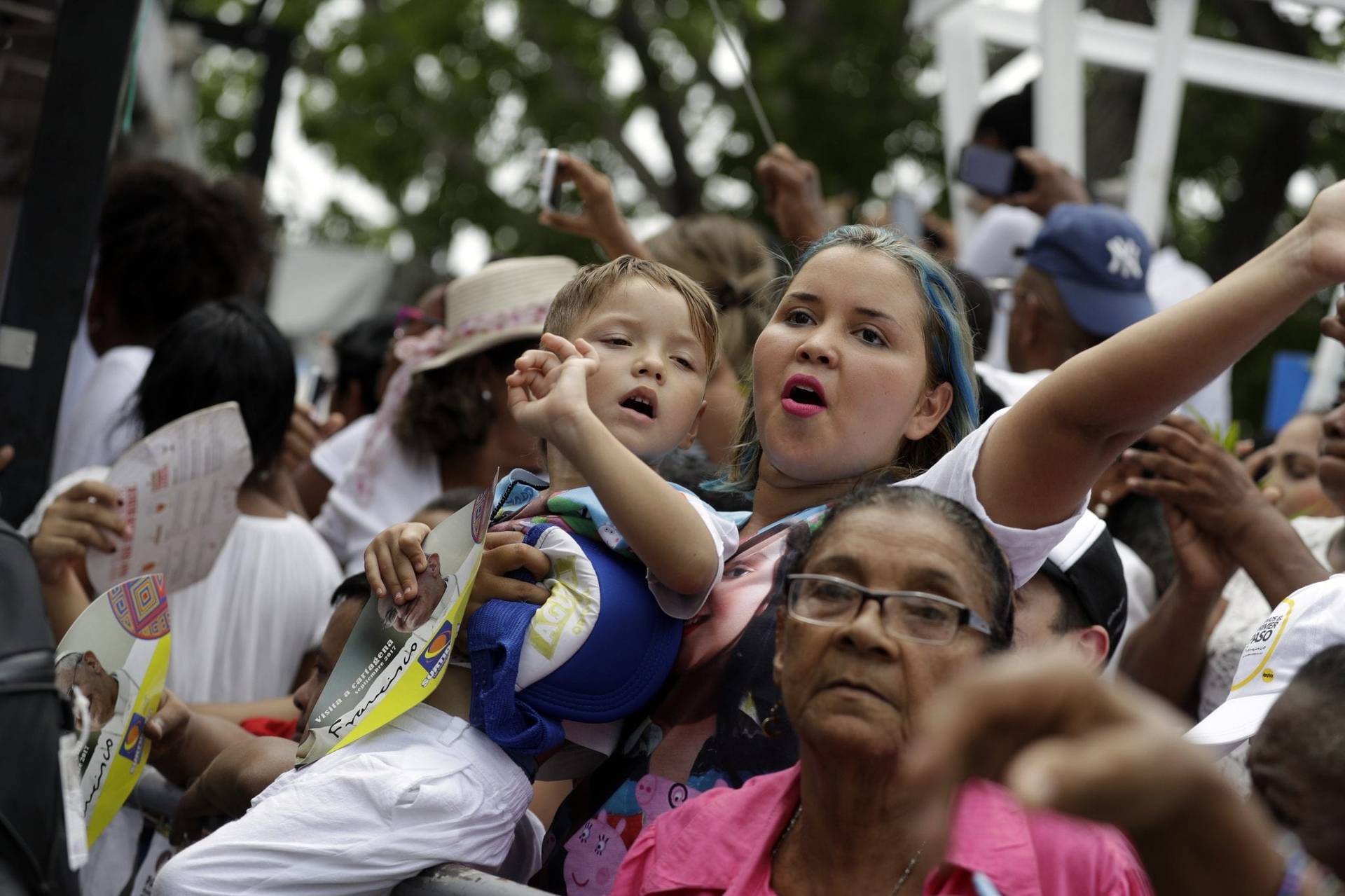BOGOTA, Colombia – After celebrating a Mass for a crowd estimated by the local mayor at 1.3 million, Pope Francis met with five bishops from Venezuela on Thursday. The encounter lasted just 10 minutes, but participants said it was enough to update the pontiff about the country’s worsening situation.
“We were very satisfied with the meeting, and the pope invited us to have hope and to communicate hope to the Venezuelan people,” Cardinal Jorge Urosa Savino of Caracas told Crux over the phone after their meeting.
“We cannot lose hope, we cannot give up,” he said. “We have to defend our rights and those of others. We have to act within the frame of the constitution and the laws, but we have to do something.”
Urosa also said that it was the Venezuelan bishops who asked for the meeting with Francis, seeing that they were going to be here during the Sept. 6-11 papal visit to Colombia to participate in an encounter the Argentine pontiff held earlier on Thursday with members of the Latin American Episcopal Conference (CELAM).
First and foremost, the cardinal said, they wanted to extend to the pope the affection of the Venezuelan people and that of the rest of the bishops.
“And of course, we wanted to share with him our gratitude for the interest and concern he’s manifested for Venezuela,” Urosa said.
The pope, Urosa said, is “very well informed” about the situation in the embattled country, but the two cardinals and three bishops who met him “brought him even more up to date.”
Each of the prelates had the opportunity to exchange words with the pope, and express their own opinions.
“Concretely, we informed him of the political radicalization that the government is doing with the constitutional assembly, a political organ they’ve created which is not only against the constitution, but it was fraudulent in its election,” Urosa said.
The assembly, which was allegedly approved by popular vote early in August, is designed to allow President Nicolas Maduro to re-write the constitution and also to govern by decree. The Venezuelan bishops have been outspoken against it, and his interview with Crux is far from the first time Urosa denounced the election of its members as “fraudulent.”
In what was perceived as an extraordinary move, even the Vatican rejected the assembly, saying it will “mortgage the future.” Through a statement signed by Pope Francis’s right-hand man, Italian Cardinal Pietro Parolin, the Holy See directly called for its suspension.
“The Holy See asks all the political actors, and particularly the government, to guarantee full respect of human rights and fundamental freedoms, as well as the current Constitution,” the statement said, calling also for “the avoidance, or suspension, of ongoing initiatives such as the new constitutional assembly, which, more than favoring reconciliation and peace, promote a climate of tension and confrontation and mortgage the future.”
Pope Francis spoke about Venezuela on his way to Colombia, where he’s currently on a pastoral visit, in an attempt to foster reconciliation and long lasting peace, after a decades long civil conflict.
RELATED: Pope says dialogue key to ‘beautiful stability’ in crisis-torn Venezuela
“I believe that the pope is doing everything he has to do and also everything that he can do,” Urosa said. “We are the ones called to resolve the problems of Venezuela, it’s not the Holy Father who’s going to fix the situation.”
Yet according to the prelate, Francis has given several indications as to what he believes needs to be done, has exhorted the parties involved, and has intervened many times.
“He’s even addressed President Maduro privately, to indicate a series of points that should be changed,” he said.
It wasn’t clear if Urosa was referring to private conversations between the two leaders that haven’t been disclosed, or to the many interventions of Parolin, who’s said the only solution for the country is to call for elections.
“The pope is doing what he can. The ones who need to act in the defense of our rights are us, the Venezuelans,” Urosa said.
By way of example, the prelate said there’s a series of political measures that can be taken to try to find a solution to the crisis. For example, there are regional elections coming up soon, and even though not everyone agrees, Urosa sees this as part of the path that needs to be travelled to be able to change governments.
He also believes it’s important to denounce abuses being committed by the government, to continue with the protests, and to keep the international political community informed on what’s going on.
“There are many things that can be done, but it’s the politicians who have to set the course Venezuelans must take to defend their rights and those of others,” he said.















